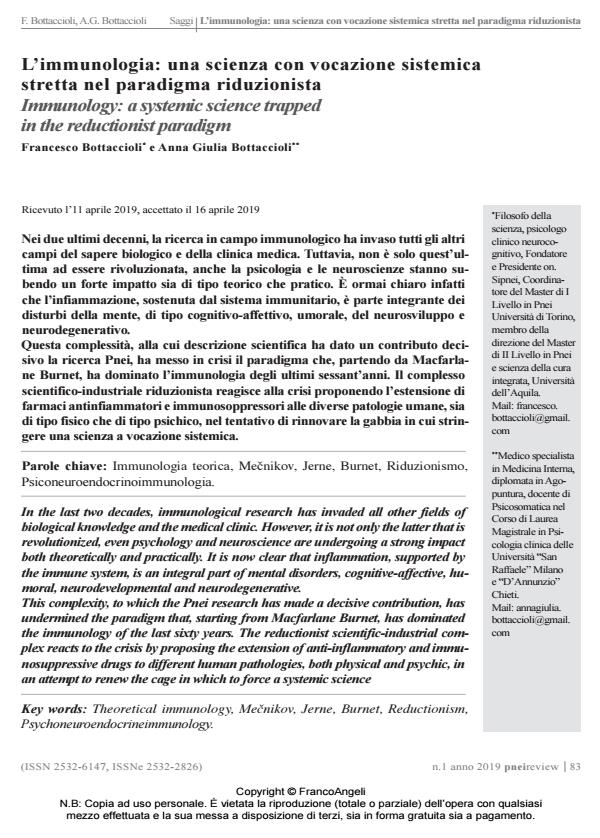Immunology: a systemic science trapped in the reductionist paradigm
Journal title PNEI REVIEW
Author/s Francesco Bottaccioli, Anna Giulia Bottaccioli
Publishing Year 2019 Issue 2019/1
Language Italian Pages 18 P. 83-100 File size 1157 KB
DOI 10.3280/PNEI2019-001009
DOI is like a bar code for intellectual property: to have more infomation
click here
Below, you can see the article first page
If you want to buy this article in PDF format, you can do it, following the instructions to buy download credits

FrancoAngeli is member of Publishers International Linking Association, Inc (PILA), a not-for-profit association which run the CrossRef service enabling links to and from online scholarly content.
In the last two decades, immunological research has invaded all other fields of biological knowledge and the medical clinic. However, it is not only the latter that is revolutionized, even psychology and neuroscience are undergoing a strong impact both theoretically and practically. It is now clear that inflammation, supported by the immune system, is an integral part of mental disorders, cognitive-affective, humoral, neurodevelopmental and neurodegenerative. This complexity, to which the Pnei research has made a decisive contribution, has undermined the paradigm that, starting from Macfarlane Burnet, has dominated the immunology of the last sixty years. The reductionist scientific-industrial complex reacts to the crisis by proposing the extension of anti-inflammatory and immunosuppressive drugs to different human pathologies, both physical and psychic, in an attempt to renew the cage in which to force a systemic science
Keywords: Theoretical immunology, Mečnikov, Jerne, Burnet, Reductionism, Psychoneuroendocrineimmunology.
Francesco Bottaccioli, Anna Giulia Bottaccioli, L’immunologia: una scienza con vocazione sistemica stretta nel paradigma riduzionista in "PNEI REVIEW" 1/2019, pp 83-100, DOI: 10.3280/PNEI2019-001009